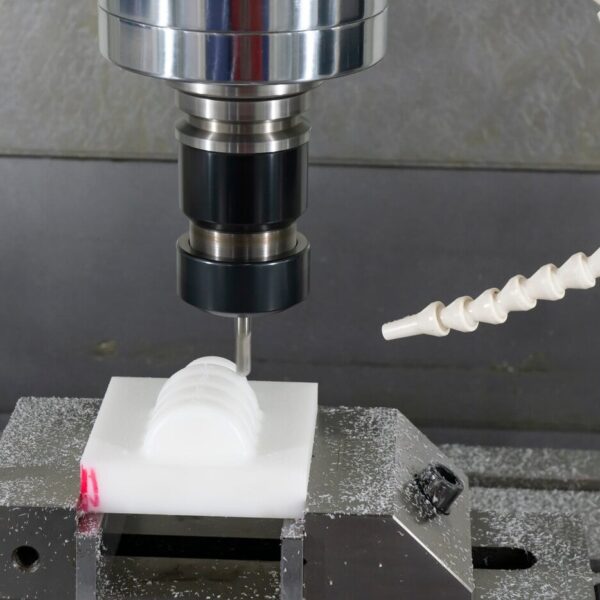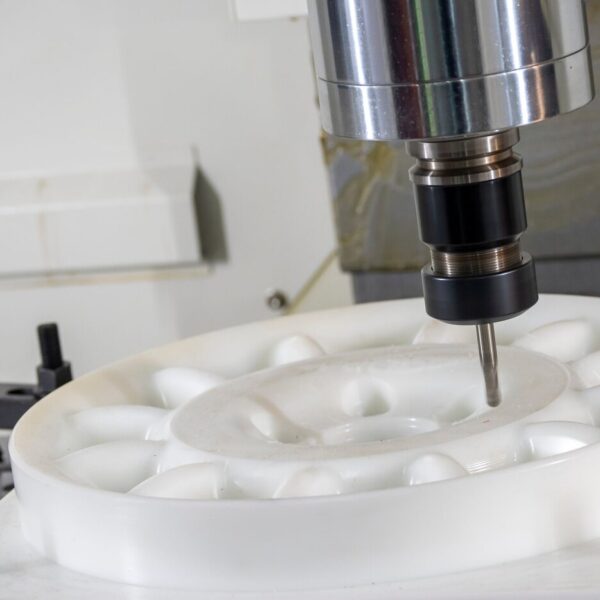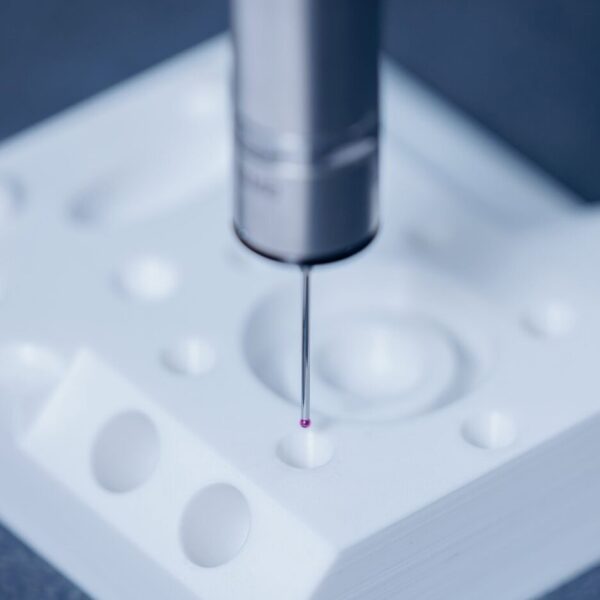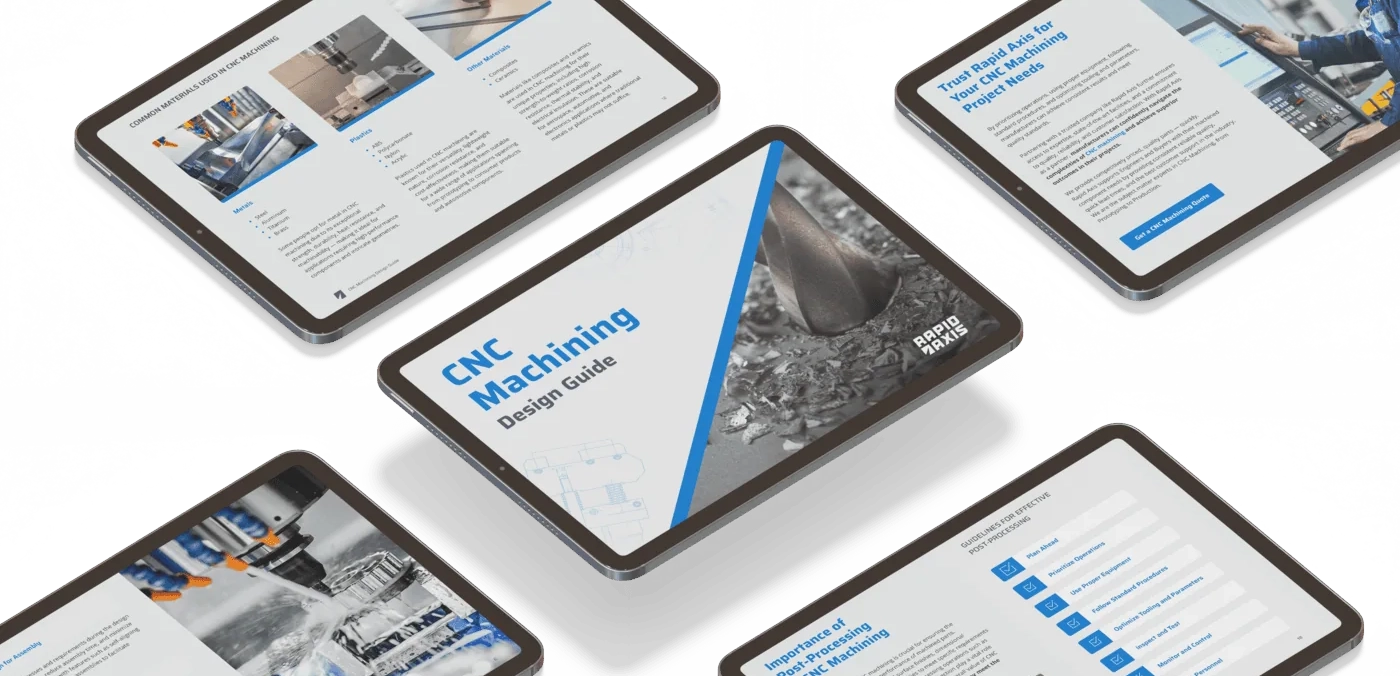Rapid Axis for Nylon CNC Machining Services
Nylon is a go-to material for applications that need low-friction, impact-resistant, long-lasting, and affordable parts. It’s a form of plastic that doesn’t weigh a lot but can handle high forces without breaking the bank. At Rapid Axis, we make nylon CNC parts that are used across industries and applications.



Why Choose Rapid Axis for Nylon CNC Parts?
In the world of plastics, nylon stands out. As a material, it can be used in countless different applications and industries, and we consider it a “general use” CNC machining material that is widely applicable. It is a versatile thermoplastic that you’ve likely encountered in your daily life — it boasts excellent strength, better wear resistance, and improved flexibility over other plastic materials.
We’ve used it for prototypes and production units alike. Since nylon can be machined, we can utilize our CNC machinery to make parts quicker, with fewer mistakes, and at lower costs for you. Whether you’re making complex mechanical assemblies or self-lubricating rotating parts, our CNC machining service can create high-quality custom nylon parts that meet your needs. We also offer a range of finishing steps to ensure every part looks perfect.
Parts made to customer drawing tolerances
Quick lead times and service
Finishing and second operations supported
Available Materials
There are a few different nylon material options that you can choose from. While they all perform relatively alike, there are some subtle differences that can make one option a no-brainer for your project:
Nylon 6
Nylon 6 has good chemical resistance, flexibility, and strength, and is the base level of nylon we offer in our shop.
Nylon 6/6
This is one of the most common nylon grades, and it has improved thermal and abrasion resistance with lower moisture absorption. We consider Nylon 6/6 a “general use” nylon.
Glass-Filled Nylon
If you need better impact resistance and stiffness, you might choose nylon that has glass fibers in it, called glass-filled nylon.
MoS2-Filled Nylon
This nylon grade includes molybdenum disulfide which offers even lower friction and better wear resistance, which is great for self-lubricating applications.
Cast Nylon
Cast nylon has great dimensional stability and lower internal stress, and we typically use this option for larger parts.
Finishing Options
As a material, nylon is applicable with a number of different finishing options. This allows you to fine-tune the final look, feel, and performance of your nylon machined parts. At Rapid Axis, we offer a few different finishing options for nylon machined parts:
Bead Blasting
Bead blasting involves shooting little pellets of sand or glass at the finished part. This creates a smooth, matte finish on your nylon parts. Doing this removes marks from the CNC machining process and hides any surface imperfections. It’s commonly used in prototypes or parts that need to stand out with a non-reflective finish.
Painting
With the right surface preparation, we can even paint nylon parts. This is useful if you need to color-code your parts or want to add custom branding for your nylon items.
Texturing
Our team can add surface texturing that helps with grip or improves the visual appeal of our nylon CNC-machined parts. You might opt for texturing if you want to make a part more ergonomic or make it look more decorative.
Dyeing
We can also perform dyeing operations if your nylon parts aren’t exposed to UV or harsh chemicals. This is a quick way to add vibrant colors for prototypes, samples, or low-volume production. Generally, it’s a more affordable way to add color to nylon parts.
Key Features of Nylon
People opt for nylon CNC parts for a number of reasons. As a material, nylon offers:
- Great flexibility. Nylon parts can flex and stretch in place without shattering, unlike metal options or other plastics.
- Low friction. Nylon is often used in linear bearings and sleeves where you want to minimize friction without introducing greases or lubricants.
- Better wear resistance. A part made out of nylon offers great wear resistance, even in dynamic situations.
- High strength. Nylon offers better strength than a lot of other plastics on the market, so it won’t break as soon as other materials.
- Great chemical resistance. Another great feature is that nylon can handle a lot of different chemicals without reacting.
- Low density. Finally, nylon is a light-weight material so you can save weight by opting for it.
General Restrictions
Alongside all the great parts of polycarbonate, there are a few restrictions that we should also mention.
- Tolerance Details. We offer tolerances of ±0.005 inches or tighter with 2D drawings for our CNC-machined nylon parts.
- Maximum Part Size. While we can machine nylon parts in a wide range of sizes, there are still some limitations. Contact us with your project requirements, and we’ll let you know if we can accommodate your size and tolerancing needs.
- Surface Finish Options. Secondary finishing steps are often required to customize the appearance of nylon parts, so we offer a full suite of surface finish services.
Nylon CNC Machining Applications with Rapid Axis
As a plastic, nylon is one of the most common material options across industries. We’ve fabricated countless nylon parts for major industries:
Automotive
The automotive industry chooses nylon since it is easy to work with, low-cost, lightweight, and relatively strong. It is used in low-friction bearings, simple gears, and it is the go-to material for clips, covers, and fluid reservoirs across a vehicle. It is typically not used for trim pieces, since it can be more difficult or more expensive to fabricate over other plastics.
Industrial Machines
Industrial applications include using nylon for wear strips and guide rails, which reduce friction in moving machinery without requiring grease. Generally, you can also find spacers, bushings, and conveyor parts that utilize nylon. As an added bonus, nylon can be used in metal assemblies without any issues, which opens the door when it comes to designing industrial machines.
Consumer Products
Consumer products use nylon since it is an aesthetically pleasing material that boasts great durability. The first examples that come to our mind are tool handles and sports equipment that need to be lightweight and durable, while including ergonomic considerations.
Laboratory Equipment
Different nylon grades are biocompatible which allows them to be used in lab equipment. Sometimes nylon is even used in joints and brackets that need to be repeatedly articulated without failing. It’s also used in laboratory tools that need to be sterilized often.

